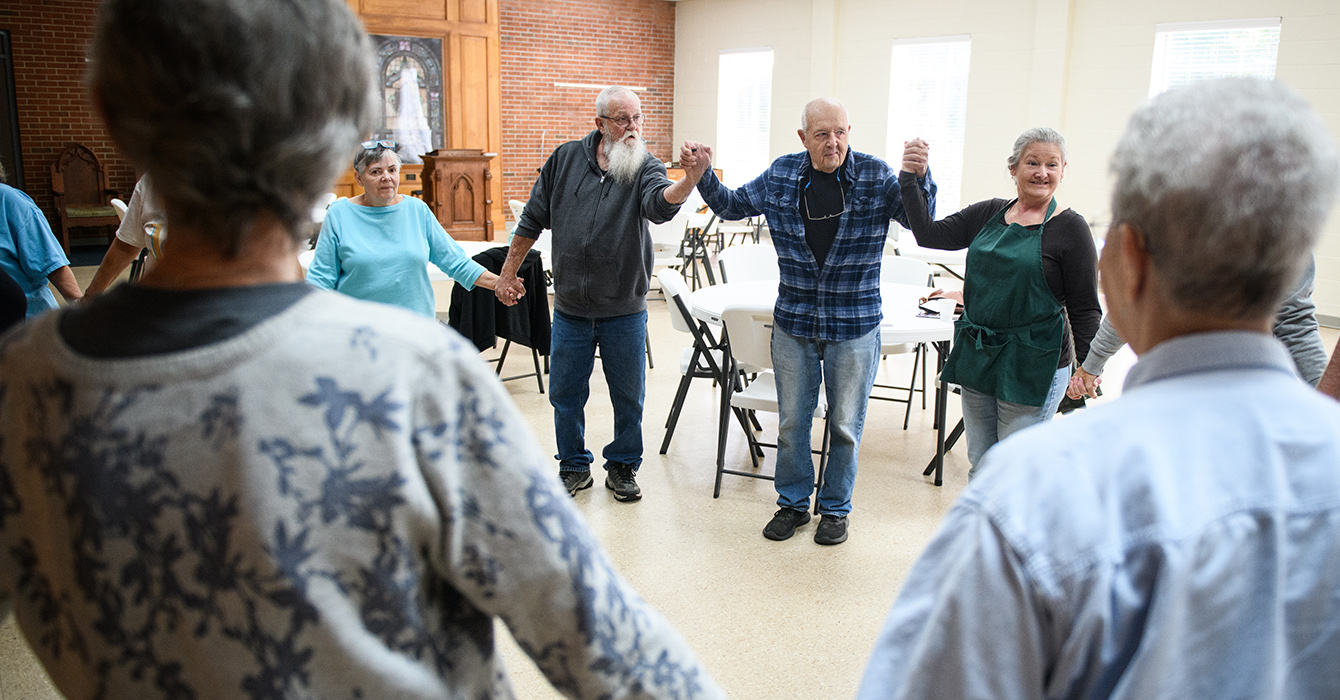We have a decent number of children and babies in the small, thriving church where I am the rector, and on a recent Sunday morning, they all showed up at once. As they fanned out in the front of the nave for the children’s sermon, I pantomimed to our children’s minister in the front row to take a photo.
We have to be careful about showing kids’ faces in photos online, but the children’s sermon is perfect, because you can take pictures of their adorable backs, and I wanted a photo to show off. I wanted the world to see that our small congregation was about 20% kids that day.
Because that’s what churches want, right? More “families with children.”
We see them coming when they’re still in the parking lot and go get the kids bags ready. We have laminated pew cards reassuring parents that Jesus said, “Let the children come to me, and do not stop them, for it is to such as these that the kingdom of God belongs” (Luke 18:16 NRSVue). They don’t need to remove restless babies from the service, because children make noise, and we get it! We love that commotion; it means our church is vibrant and alive. In a time when too many churches struggle and close, the sound of children means that we have hope of staying open.
But while we’re reaching for those bags with stuffed animals and finger labyrinths to keep the youngest ones occupied during worship, we might overlook an elderly woman shuffling in alone. Or a man who avoids eye contact and acts as if he knows where he’s going, even though we’ve never seen him before. Or other adults who show up without kids, maybe because they don’t have any, or maybe because theirs are “grown and flown.”
That’s a problem, because people who show up to church without kids are just as brave and valuable as those coveted young families with children. Those without children are members of the body of Christ and have gifts to offer our churches. How can we make them feel just as wanted as those with children?
Throwing programs at them like singles ministries or seniors groups is not the answer. Such affinity groups may explain why some people join larger congregations, but a diverse congregation where Christians feel that they belong among different people at different “life stages” is a gift of smaller churches. Such diversity also addresses the longing for community most human beings feel. It can be helpful to ask people without kids what they seek to feel valued, because one solution isn’t going to work for every church.
My new book, “Unexpected Abundance: The Fruitful Lives of Women Without Children,” profiles 25 women of faith who bore significant fruit even though they did not bear children (at least not any we know about), from Miriam and Mary Magdalene in the Bible to historic activists like Rosa Parks to some who are still alive and thriving, like Dolly Parton and Sister Helen Prejean. I wrote it as a woman without children and as one who knows how difficult it can feel walking into a church alone and being ignored. I’ve watched people size me up or look behind me to see whether I’ve come with a partner or kids.
When I was younger, people assumed that I would have children eventually. At one church I joined as a 20-something, long before I was ordained, I wasn’t asked to serve in any way at first, but I sought ways to be involved and ended up in a small group that went out in pairs to visit the church’s shut-ins every month. I also started delivering Meals on Wheels. Being a young married woman whom they assumed would soon become a busy mom initially meant being overlooked for ministry.
Not having children at home can be a gift for church members. Some of us — but not all, as this group is as diverse as any — have time and resources to share with the church that many parents may not, because having children at home is so demanding.
Children are gifts, but we often hesitate to name the gifts that people without children (or without them at home) also have. Those resources can be valuable to any church. Retirees without children at home, for example, have long been key volunteers in churches because of their decades of experience and their discretionary time in retirement.
This does not mean we should overlook parents of young children when seeking people for particular ministries. Some of the best senior wardens I have had as the rector of an Episcopal church have been younger women with children at home. But while children are signs of life, we as Christians are called to open our eyes to signs of life in all members of the body of Christ, including widows, single people, retirees and everyone who comes through our doors on any given Sunday. Anyone can bear fruit and multiply, not just parents.
Those without children are members of the body of Christ and have gifts to offer our churches. How can we make them feel just as wanted as those with children?


















